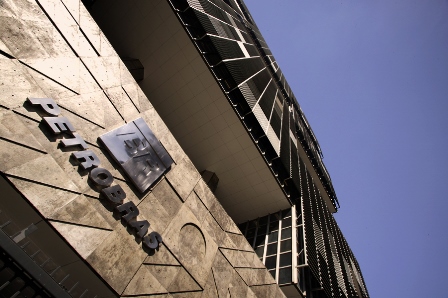The privatization of Brazil’s Petrobras is unlikely to happen in the short term and is not the answer to reduce fuel prices in the country, according to local sources consulted by BNamericas.
To lawmaker Edio Lopes, chairman of the energy committee of the lower house of the national congress, the political environment for selling the state-owned oil giant is “absolutely unfavorable.”
“Petrobras isn’t just a matter of numbers, but national sentiment, so it’s not a simple matter to talk about privatizing the company, especially in the run-up to an election year,” he told BNamericas.
The company’s privatization has been backed by both President Jair Bolsonaro and economy minister Paulo Guedes, who on Monday claimed “Petrobras will be worth zero in 30 years.”
Lopes criticized the minister’s comment, saying it was unnecessary and very damaging to Petrobras and Brazil’s interests.
“Petrobras has important shareholders in various parts of the world. So a statement like this can lead to fears on the part of investors, especially in the medium and long term,” he pointed out.
The congressman does not believe selling Petrobras would help reduce fuel prices, as Guedes, Bolsonaro and the president of the lower house, Arthur Lira, have recently claimed.
“Petrobras is a company with a high percentage of national capital and, even so, it’s following international oil prices, with the dollar as a benchmark. If they privatize it, it’s reasonable to imagine that the new managers would adopt the same strategy, perhaps even more deeply, so we could have further increases in fuel prices,” Lopes said.
Professor Adílson de Oliveira, of Rio de Janeiro ‘s federal university UFRJ, is of the same opinion.
“Petrobras uses prices that are in line with international prices. The same would be done by the buyer of Petrobras, so its privatization wouldn’t alter the prices,” he told BNamericas.
Rodrigo Mariano, a partner at law firm R Mariano Advogados, said the real solution is the depreciation of the dollar against the Brazilian real, which depends on effective economic policy.
“On the other hand, the states have the power to change the ICMS tax rate [on fuel prices], but so far they haven’t shown any interest in doing so, because the higher the price of fuel, the more the states collect,” he said.
For Carla Ferreira, a researcher at the national institute for strategic petroleum studies (Ineep), by privatizing the company, the state would lose the ability to establish a pricing policy that is less closely linked to international prices, as countries that do not depend so heavily on imports often do.
She also underlined that the sale of Petrobras’ refineries could result in the formation of regional private monopolies, since the plants were not originally designed to compete with each other.
“The derivatives from Petrobras’ refineries are different. Each one refines one type of oil and there are logistical obstacles, so competition between them isn’t as logical as those who advocate privatization want you to think,” she told BNamericas.
Antônio Luís, a partner at law firm Schmidt Valois, told BNamericas that the main challenge for selling Petrobras, besides the political hurdles, is creating a privatization model, which would have to combine attractiveness and legal security and guarantee free competition in a more competitive market.
The alternatives range from directly selling the controlling shares in the company to the separation by classes of assets into distinct firms through partial spin-offs and their subsequent sale.
“Thus we could, for example, allocate exploration and production assets, such as [exploration] blocks, pipelines and natural gas processing units to one or more companies, as well as midstream assets, like refineries, pipelines and terminals in others, and these companies would be sold separately,” he said.
Luís stressed that, as Petrobras is a mixed public-private company, the model must balance the rights of the private shareholders with the participation or not of the government in the company or privatized companies through vetoes or special votes in certain decisions (golden share).
“Considering the political sensitivity of the issue and the complexity of the operation, I don’t see this happening in the short term, especially in 2022, an election year,” the lawyer said.
FINANCIAL RESULTS
Petrobras is due to announce its third-quarter financial results on Thursday.
Ineep forecasts that its net profit will be 31.5bn reais (US$5.65bn), down 26% from the second quarter, albeit reverting the 1.55bn-real loss posted in the same period of 2020.
The average net profit predicted by Goldman Sachs, Credit Suisse and BTG Pactual is 18.3bn reais.
fonte: https://www.bnamericas.com/en/features/mooted-petrobras-privatization-would-not-help-reduce-fuel-prices–experts



